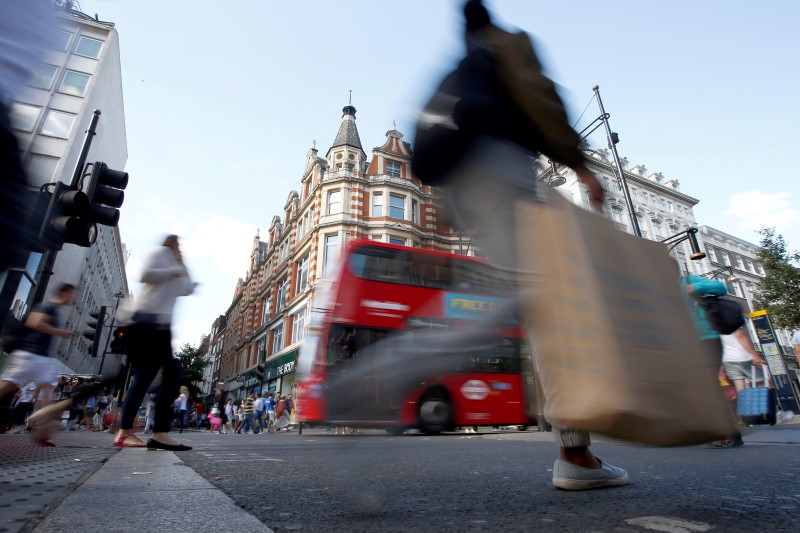Who is Kevin Hassett? Wolfe looks at the Trump ally tipped to become Fed Chair.
Investing.com - The annual rate of inflation in the U.K. dropped to 1.8% in January according to data released on Wednesday, its lowest level since Dec. 2016 and below the Bank of England's target.
January’s inflation reading was down from 2.1% the month before and was also below forecasts for a drop to 1.9%. The BoE targets inflation of 2%.
Core CPI, which excludes food, energy, alcohol, and tobacco costs, rose by an annualized 1.9% last month the Office for National Statistics said, in line with forecasts and matching the previous month.
"The fall in inflation is due mainly to cheaper gas, electricity and petrol, partly offset by rising ferry ticket prices and air fares falling more slowly than this time last year," ONS statistician Mike Hardie said.
The slowdown in inflation underlines the case for the BoE to hold off for now on further policy tightening amid the political crisis surrounding the U.K.’s departure from the European Union. But analysts believe that there is still room to hike later this year and the Bank itself repeated last week that the next move in interest rates could be up as well as down.
The drop in inflation follows data out this week that showed the British economy grew at the slowest pace since 2012 last year, as concerns over Brexit and a wider global economic slowdown dragged on confidence and businesses reduced investment.
Traders widely expect the U.K.’s central bank to make no changes to interest rates until uncertainty from the Brexit process is resolved.
Earlier this week, BoE governor Mark Carney said stable global growth is more likely than a recession but highlighted some risks to the outlook, including growing debt in China and a reduction in the world's openness to trade.
He further indicated that Brexit could be the ‘acid test’ of whether the world can combine the benefits of economic openness with greater democratic accountability.
“Provided the expansion continues, a modest tightening of monetary policy over time will likely be sufficient to achieve inflation targets. Policy can remain limited and gradual, as well as data-dependent,” Carney stated.
While analysts remain cautious, they also have yet to rule out that the British central bank could tighten rates this year.
“Assuming an amicable outcome to the Brexit negotiations, there are enough hawkish signals in the inflation report to conclude that the BoE could hike rates later this year, which should support the currency,” Marc-André Fongern, FX strategist at MAF Global Forex, said.
James Smith, Developed Markets economist at ING, thinks the BoE is highly unlikely to tighten policy again through the first half of this year and notes that the chances of a rate hike at all in 2019 have receded, “but we think it’s too early to write one off completely,” he said, highlighting the fact that everything depends on the Brexit outcome.
“Most paths now lead to an extension of the Article 50 negotiating period, but if (and it's still a big if) the government can secure a cross-party consensus for a particular deal – for instance one that commits to a permanent customs union – then this may well be followed up with a Bank of England rate hike relatively swiftly,” Smith added.
Separately, the ONS said house prices in December rose by an annual 2.5% across the U.K. as a whole, the smallest increase since July 2013 and compared with 2.7% in November. Prices in London alone fell for a sixth month running, down 0.6% on the year.
-- Reuters contributed to this report
